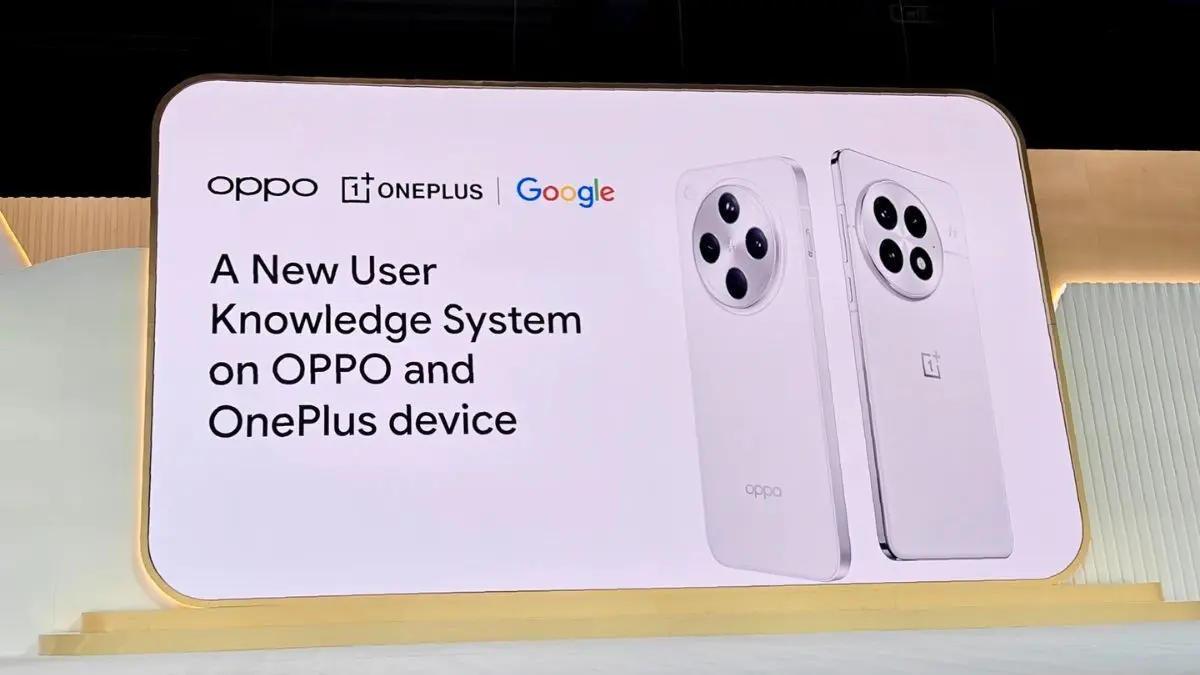Oppo Unveils Privacy-Focused AI Solution in Partnership with Google
2 Sources
2 Sources
[1]
Oppo announces a more privacy-focused AI - Phandroid
Requesting information from AI is largely similar to how we access the internet. We send a request to the AI, it then processes the information on a remote server and then passes it back to us. This means that our requests, in theory, could be viewed by someone else. This is something Oppo is looking to address with a more privacy-focused AI. At MWC 2025, Oppo announced that it has a deal with Google in which it will use Google's Confidential Computing software. This uses encryption to ensure that third-parties cannot view user data, so whatever AI requests you make will stay confidential. Oppo is calling this Private Computing Cloud, which honestly sounds rather familiar. This is because Apple has a similar system in place it calls Private Cloud Compute. The concept is similar -- where Apple protects the privacy of user data from its own AI system. According to Oppo, its Private Computing Cloud system will be used with some of its AI features. This includes recording, call summaries, and image generation. Oppo is making a big push for AI as the company has also announced upcoming features. This includes call translation and voice transcription. In addition to creating a more privacy-focused AI, Oppo is also integrating Google's Gemini into its own apps like Notes, Calendar, and Clock.
[2]
China's Oppo taps Google for privacy AI push, taking a page from Apple's playbook
Oppo is the sixth-largest smartphone maker in China, according to Counterpoint Research. BARCELONA -- Chinese smartphone firm Oppo is taking a page out of Apple's playbook with the launch of a private cloud computing system to keep users' sensitive conversations separate from its own artificial intelligence products. The company on Monday announced a deal with Google that will see it use the U.S. tech firm's Confidential Computing software, which uses encryption to ensure user data can't be viewed by third parties, to power a new privacy-preserving solution it's calling Private Computing Cloud. The idea is to make sure that users' sensitive data such as browser searches and private calls can't be shared with Oppo for the purposes of training its AI software. Oppo already has a partnership in place with Google, where the firm uses the internet search giant's Gemini foundation models to power its AI features. The privacy push mimics an effort from Apple to protect user data from its own AI system, Apple Intelligence. The iPhone maker last year debuted Private Cloud Compute, or PCC, a "cloud intelligence system designed specifically for private AI processing." Oppo said that its Private Computing Cloud system will be integrated with several features this year, including recording and call summarization, search and image generation. Oppo is the sixth-largest smartphone maker in China, according to Counterpoint Research, holding a 14% market share in the three months ending 2024. "With AI being a lightning conductor for privacy concerns, particularly amongst Chinese device makers, this is an interesting move by Oppo as it seeks to gain a foothold in the AI-enabled smartphone space," Ben Wood, chief analyst at market research firm CCS Insight, told CNBC.
Share
Share
Copy Link
Chinese smartphone maker Oppo announces a new privacy-preserving AI system called Private Computing Cloud, utilizing Google's Confidential Computing software to protect user data in AI interactions.

Oppo's Privacy-Focused AI Initiative
Chinese smartphone manufacturer Oppo has announced a significant move towards enhancing user privacy in artificial intelligence interactions. At the Mobile World Congress (MWC) 2025, Oppo revealed its new privacy-preserving solution called Private Computing Cloud, developed in partnership with Google
1
.The Technology Behind Private Computing Cloud
Oppo's Private Computing Cloud leverages Google's Confidential Computing software, which employs encryption to ensure that third parties cannot access user data during AI interactions
2
. This technology aims to address concerns about the privacy of user requests to AI systems, which typically involve processing information on remote servers.Features and Integration
The Private Computing Cloud system will be integrated with several Oppo features, including:
- Recording and call summarization
- Search functionality
- Image generation
Additionally, Oppo is expanding its AI capabilities by integrating Google's Gemini foundation models into its own apps, such as Notes, Calendar, and Clock
1
.Market Position and Industry Trends
Oppo currently holds the position of the sixth-largest smartphone maker in China, with a 14% market share as of 2024
2
. This move towards privacy-focused AI aligns with growing industry trends and consumer concerns about data protection in AI interactions.Comparison to Apple's Approach
Oppo's Private Computing Cloud bears similarities to Apple's Private Cloud Compute (PCC) system, which was introduced to protect user data from Apple's own AI system, Apple Intelligence
2
. This parallel approach highlights the increasing importance of privacy in AI development across the smartphone industry.Related Stories
Expert Opinion
Ben Wood, chief analyst at market research firm CCS Insight, commented on Oppo's strategy: "With AI being a lightning conductor for privacy concerns, particularly amongst Chinese device makers, this is an interesting move by Oppo as it seeks to gain a foothold in the AI-enabled smartphone space"
2
.Future Implications
As AI continues to play a crucial role in smartphone functionality, Oppo's focus on privacy could set a new standard in the industry. This development may encourage other manufacturers to prioritize user data protection in their AI implementations, potentially reshaping the landscape of AI-enabled smartphones and user expectations regarding privacy.
References
Summarized by
Navi
[1]
Related Stories
Recent Highlights
1
ByteDance's Seedance 2.0 AI video generator triggers copyright infringement battle with Hollywood
Policy and Regulation

2
Demis Hassabis predicts AGI in 5-8 years, sees new golden era transforming medicine and science
Technology

3
Nvidia and Meta forge massive chip deal as computing power demands reshape AI infrastructure
Technology








